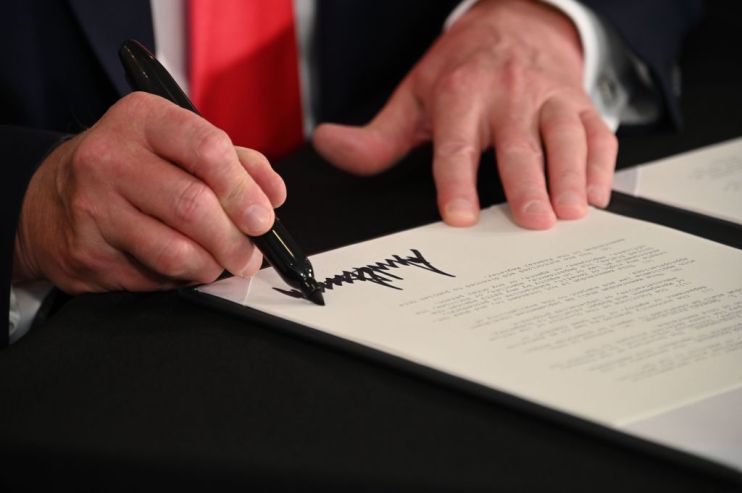Trump signs coronavirus relief orders after Congress talks break down

US President Donald Trump signed executive orders over the weekend that partially restored increased unemployment benefits for those who lost their jobs during the pandemic.
The US has now surpassed more than 5m cases and 160,000 deaths from Covid-19. Unemployment figures improved slightly in July, but failed to match the growth rates of May and June.
Trump said the orders would provide an extra $400 per week in unemployment payments, less than the $600 per week passed earlier in the crisis.
Some of the measures are likely to face legal challenges, however, as the US Constitution gives Congress authority over federal spending.
“This is the money they need, this is the money they want, this gives them an incentive to go back to work,” the Republican president said of the lower payments.
He said 25 per cent of the costs would be paid by states, whose budgets have been hard hit by the crisis.
Democratic rival Joe Biden said they were “a series of half-baked measures”, accusing Trump of putting social security “at grave risk” by delaying the collection of payroll taxes that pay for the programme.
Talks between White House officials and Congress broke down on Friday after two weeks of negotiations.
Trump’s move to take relief measures out of the hands of Congress drew immediate criticism from some Democrats.
“Donald Trump is trying to distract from his failure to extend the $600 federal boost for 30m unemployed workers by issuing illegal executive orders,” said senator Ron Wyden, the top Democrat on the Senate Finance Committee.
“This scheme is a classic Donald Trump con: playacting at leadership while robbing people of the support they desperately need.”
The Democratic-majority House of Representatives passed a coronavirus support package in May which the Republican-led Senate ignored.
Trump’s suspension of collection of payroll taxes is an idea that he has repeatedly raised but has been rejected by both parties in Congress. Trump said the suspension would apply to people making less than $100,000 per year.
The executive orders come as Trump aims to detract from scrutiny of his handling of the coronavirus pandemic, as he and Biden prepare for the presidential election in November.